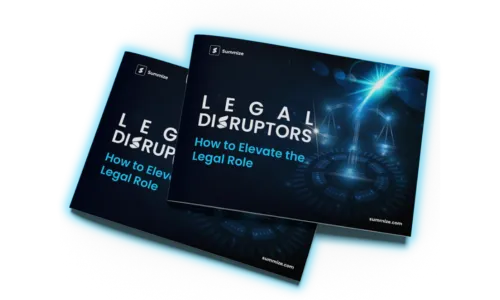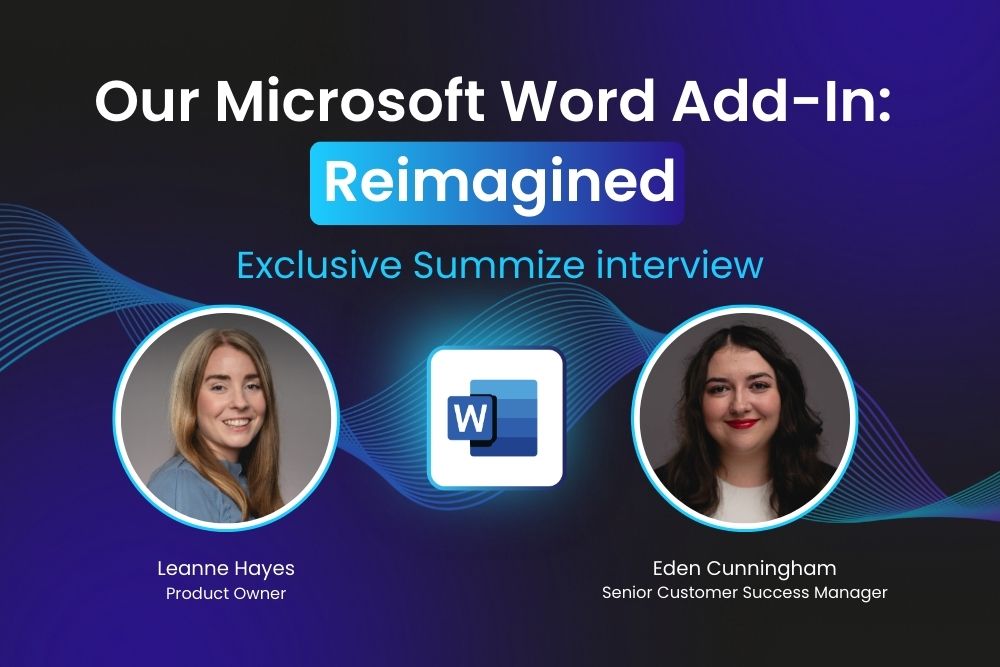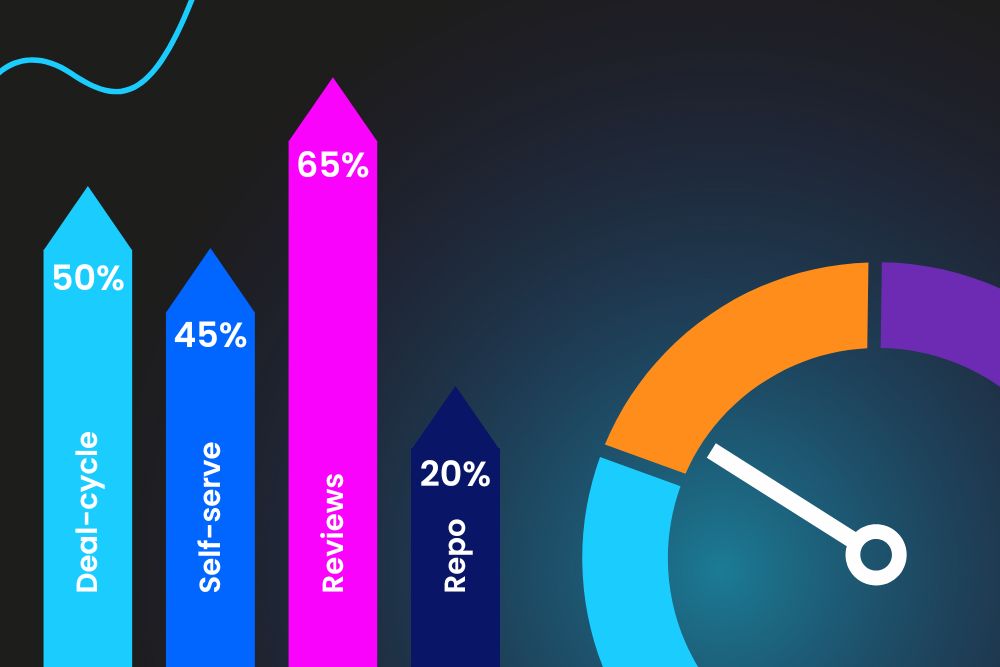The Legal Eagle Podcast: Law & Technology Series
Eimear McCann from Summize caught up with Sarah-Mae Thomas from The Legal Eagle Podcast to discuss law and technology.
May 4, 2021
December 19, 2025
In the final episode of The Legal Eagle’s law and technology series, host Sarah-Mae Thomas is joined by Eimear McCann, a former practicing lawyer who now works at the intersection of law, technology and strategy, and now Summize’s Head of Strategy. Sarah-Mae is the founder and voice behind The Legal Eagle, a podcast driven by her passion for the law and her desire to empower both legal professionals and everyday listeners through thoughtful, accessible conversations.
Her guest, Eimear McCann, brings a multifaceted perspective. With over a decade of legal practice behind her and hands-on experience in legal technology, Eimear offers a candid and insightful view of how the legal profession is evolving.
Together, Sarah-Mae and Eimear explore how personal experience, creativity and technology are reshaping the legal landscape.
A legal journey shaped by context and curiosity
Eimear’s path into law was not a straightforward one. She describes herself as an “accidental lawyer”, choosing law initially for its perceived security rather than from a clear vocation. Growing up in Northern Ireland during a time of deep social and political division exposed her early to issues of inequity and identity. That lived experience later influenced her move into areas such as human rights and immigration law, where the law’s impact on real lives was most visible.
Alongside her legal training, Eimear nurtured a love of writing, languages and creativity, even working as a writer and freelancer before completing her legal practice course. This blend of analytical thinking and creative instinct became a defining feature of her career and ultimately led her to question whether traditional legal practice alone was enough.
From traditional law to legal technology
After practicing law for around 11 years, Eimear began to feel drawn towards something more innovative. Legal technology was gaining momentum, particularly in London, and she was struck by the energy, agility and sense of purpose within legal tech startups. Rather than viewing technology as a threat to the profession, Eimear saw it as an opportunity to remove friction from legal work and allow lawyers to focus on higher-value, human-centered tasks.
Her transition into legal tech was not driven by a single moment, but by a growing awareness that many of the repetitive, time-consuming tasks she had experienced in practice could be done better. Legal tech, for her, represented the intersection of law, creativity and problem-solving.
Making legal tech practical and human
A central theme of the conversation is the idea that technology should meet lawyers and businesses where they already are. Through her work at Summize, Eimear explains how effective legal tech is not about grand promises of transformation, but about solving specific, everyday problems. Summize focuses on low-risk, low-value contract review, helping both legal and non-legal teams quickly understand risks, obligations and key terms.
Importantly, the platform is designed to integrate into tools people already use, such as Microsoft Word and Teams. This approach reflects a broader shift in legal tech away from “one-size-fits-all” solutions and towards modular, user-friendly tools that support collaboration and better decision-making across organizations.
The future of law and innovation
Looking ahead, Eimear believes the legal profession is at a pivotal moment. The pandemic has accelerated change, forcing firms to adopt technology and flexible working practices far more quickly than anticipated. She predicts that firms able to clearly define their culture, goals and client needs, and adopt technology thoughtfully rather than for its own sake, will be best positioned to succeed.
Clients’ expectations are also changing. They want speed, transparency, accessibility and value, often delivered through digital channels, without losing the human connection that underpins trust in legal services. Legal tech, when used well, can help bridge that gap.
This episode of The Legal Eagle offers an honest and inspiring look at how law, technology and personal experience intersect. To hear the full conversation and gain deeper insights into legal tech, career transitions and the future of legal practice, be sure to listen to the complete podcast episode at the start of the article, and to hear more insights from the Summize team, explore our articles below.
Discover even more!
Explore more about contracting and CLM in our ultimate contract guides








